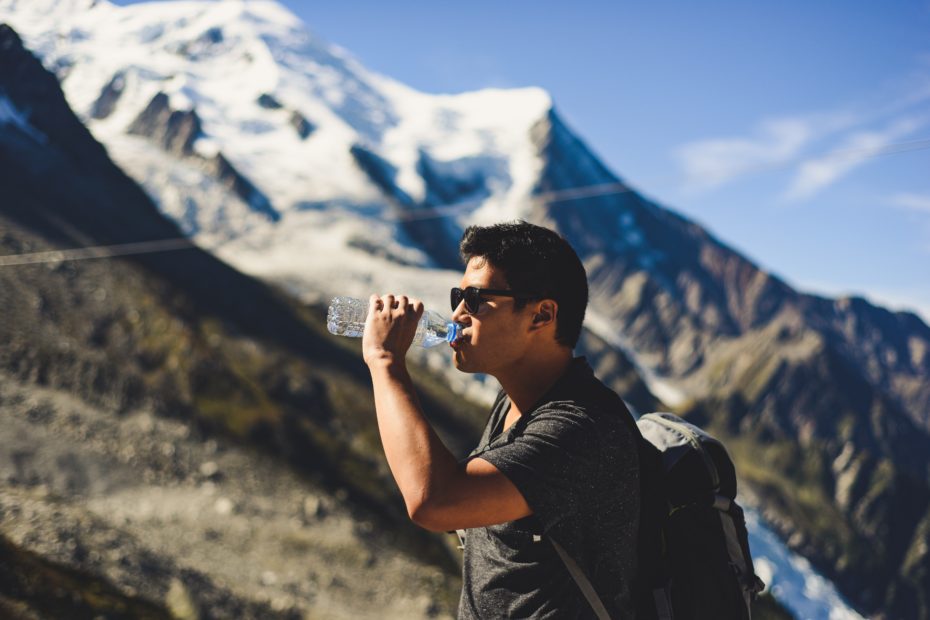Many athletes would run a lot farther and faster if they would just hydrate better – and they’d probably have a lot more fun too.
To be clear, I didn’t write, “hydrate more” or “drink more water” or “increase their fluid intake.” While those are true for a lot of people, they’re not true for everyone.
Some people drink too much.
Some people drink enough, but don’t eat enough sodium.
Some people eat too much sodium.
Or… depending on your race, you might experience all of these factors at different times throughout the run.
The farther you’re trying to go, the more likely it is you run into at least one of these things.
Why You Need to Hydrate Better
Most of us can agree – hydration matters.
Proper hydration is essential to avoiding potentially deadly conditions like rhabdomyolysis and hyponatremia.
But even ignoring the scary stuff, you need to hydrate well if you’re going to perform anywhere close to your potential.
Maybe you’ve heard the adage – ultramarathons are more eating competitions than they are running races. Well… if you’re dehydrated, you can’t digest food. Even if you aren’t planning to get anywhere close to a podium spot, I would still bet you don’t want to have a bad race.
So if you want to perform better and have more fun, you should spend a little time on hydration.
Now, this might beg the question – why is dehydration so common during an ultra?
And why can it be so difficult during an ultra?
Very simply, most people don’t spend enough time on it.
You can solve most dehydration issues by consuming more fluid, more often. THAT’S NOT ALL YOU NEED – but most people simply don’t consume enough fluid.
A lot of people simply don’t realize they have a hydration problem. Many athletes come to me saying “My hydration’s fine, but I need to figure out my nutrition.” Then we spend 2 minutes talking about their problem and I learn they have no idea how much fluid they’re consuming because they “drink to thirst.”
Solved it. You don’t have a nutrition problem. Your hydration strategy is terrible.
If you’re struggling with any of the following 5 issues… you probably need to hydrate better.
1 – You struggle to eat in the heat or at elevation
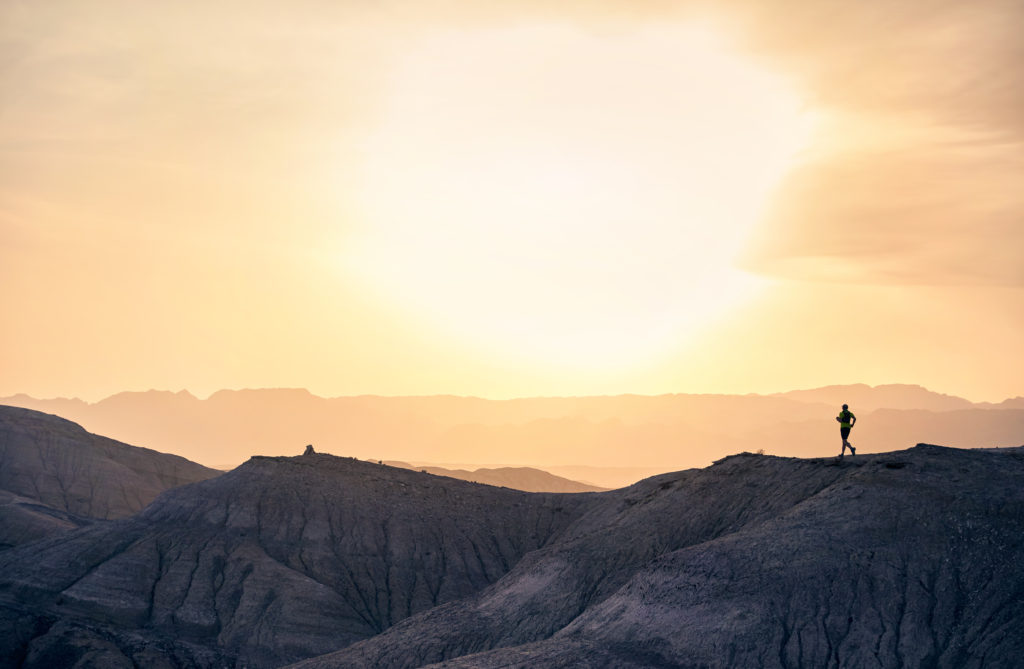
Let’s be real.
An ultra is a perfect storm for gut issues.
There’s a reason why at least 40% of DNF’s are at least partially related to gut issues – because they’re super common.
What does that have to do with hydration?
A lot.
- Dehydration leads to a decrease in blood volume – specifically from a loss in blood plasma.
- Less blood volume leads to less blood flow.
- Less blood flow results in an increased heart rate.
- Digestion requires a lot of blood flow to the stomach
- When running your body prioritizes blood flow to your legs, which means a further reduction in blood flow to the stomach
- Running also raises cortisol, which further slows digestion
Know what happens in the heat? You dehydrate faster. Sometimes, you might need to consume over twice as much fluid in the summer as you do in the winter to maintain similar hydration.
How about at altitude? Same thing. If you’re going from sea level to 10,000 feet, you might need to consume an extra 20-30% of fluid to stay hydrated.
Are you perfectly fine on your spring runs at sea level? Do you then have issues when summer comes around or when you try to push it in the mountains?
It’s probably not your food.
You’re probably dehydrated.
Hydrate better and eating will be easier.
2 – You always have stomach problems around “mile X” or “time Y”
This is a classic sign you need to hydrate better.
All of these are real quotes from real athletes who’ve joined my facebook group – Trail and Ultra Running Nutrition.
- “Started having gut issues at about the 22-mile mark”
- “Don’t have a fueling issue for 18 miles, but after that…”
- “Gut issues mile 40-ish”
- “Nausea after 8-10 hours”
- “Struggling with nausea past 7-8 miles”
And those are just a small fraction of what I see.
When you’re having this type of issue, one of two things is going on.
- You’re dehydrated. Dehydration adds up over time, so you’ve been slowly dehydrating over the course of your race and then “suddenly” you get sick. It wasn’t sudden, you just suddenly noticed it.
- You’ve been pushing too hard. You can only push at a higher intensity for so long before your body needs to slow down. Depending how fast you’re going, you can delay this process, but it’ll happen eventually. Then, if you don’t slow down, you’re going to start to feel like crap.
- Both.
So, either fix your pacing or fix your hydration.
There are some other things happening in your body that can also play a factor – but none of them are nearly as dehydration and poor pacing.
And improving your hydration can make pacing easier – because fluid also allows you to digest food and helps you control your temperature.
If you’re always running into stomach problems at a certain point, fixing your hydration will help.
3 – Urination is anything other than “normal”
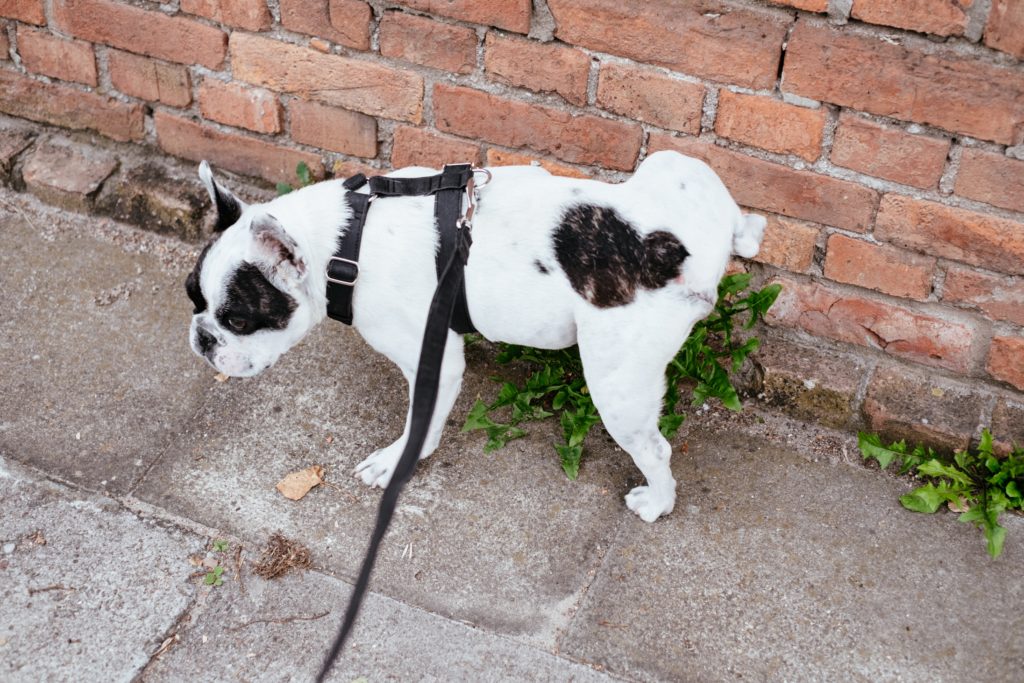
How do we define “normal?”
For one, you should be urinating regularly. That can mean different things for different people, but if you’re running for 6… 12… 24 hours… you should be peeing.
Fast marathoners can have issues here because oftentimes during a fast marathon you’re trying to cut that fine line between hydration and avoiding bathroom breaks.
Not the same in an ultra.
In an ultra, you shouldn’t stop peeing. You might pee a little less than normal, but it should be pretty similar to y.
And when it comes to color, it should be light yellow.
It shouldn’t be clear – that’s a sign you’re drinking too much fluid and very possibly risking hyponatremia, or at the very least unnecessary stomach sloshing.
It also shouldn’t be dark – that’s a great sign you’re on the way to big problems like rhabdo.
Yes, ultras are weird. Your bodily functions will be a little off. They shouldn’t be way off – especially when it comes to your pee.
4 – Your taste for salt is wonky
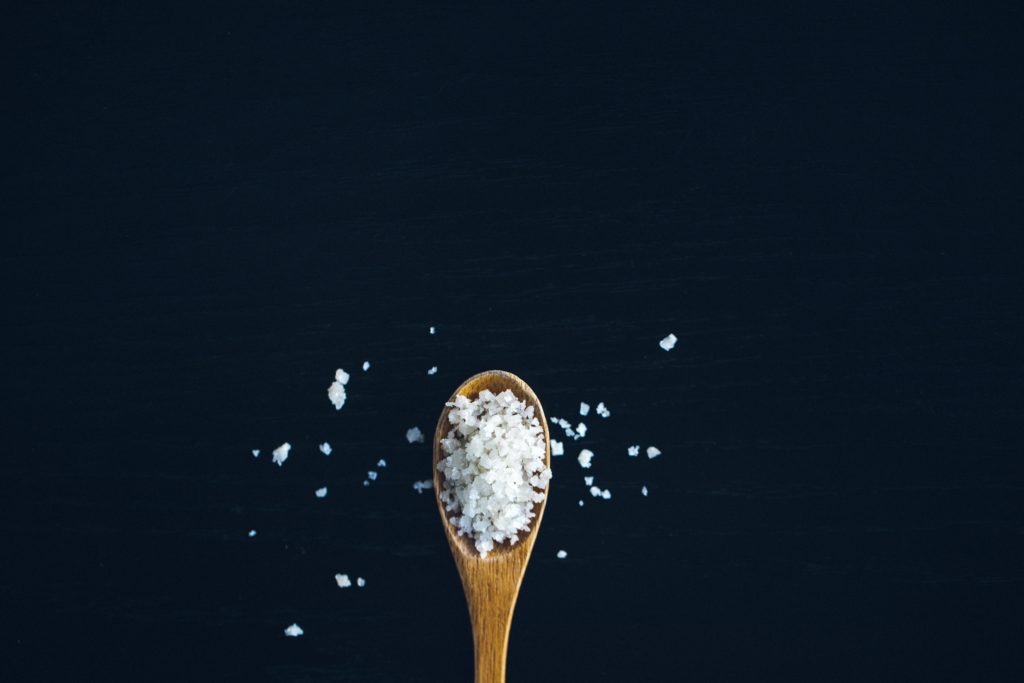
Sodium is required for you to hydrate better.
If you drink a lot of fluid without consuming sodium, two things are going to happen.
- You’ll be more likely to dehydrate. You absorb fluid better with some electrolytes and carbohydrates. Without electrolytes and carbs, you’ll have to drink more fluid to get the same results. Hello sloshy stomach.
- You’re risking hyponatremia – a great way to end up in a hospital.
If your sodium intake is off, then you’re at a much higher risk for problems.
Want to know a great way to tell if your salt intake is off?
Taste. For most people, if salt tastes good, then it’s still okay to eat salt.
If salt tastes bad, then you should stop eating salt.
This is often not true for people with kidney problems – so if you’re doctor has specifically told you to cut your salt, then you should listen to your doctor.
But for the rest of us, trust your tatebuds.
Eat a potato chip at an aid station. Taste good? Great. Keep using that sodium. Taste bad? Cool. Stop for a bit and then cut it back.
5 – Your hands are puffy
There are a lot of reasons why your hands might swell during a race.
Here is a great infographic from Running Explained that breaks down 4 common causes.
One of them is hyponatremia.
So while a little puffiness is normal, if they’re notably puffy, you might need a little more salt.
Want to know if more salt is a bad idea? See #4 above.
A Huge Bonus Sign You Need to Hydrate Better
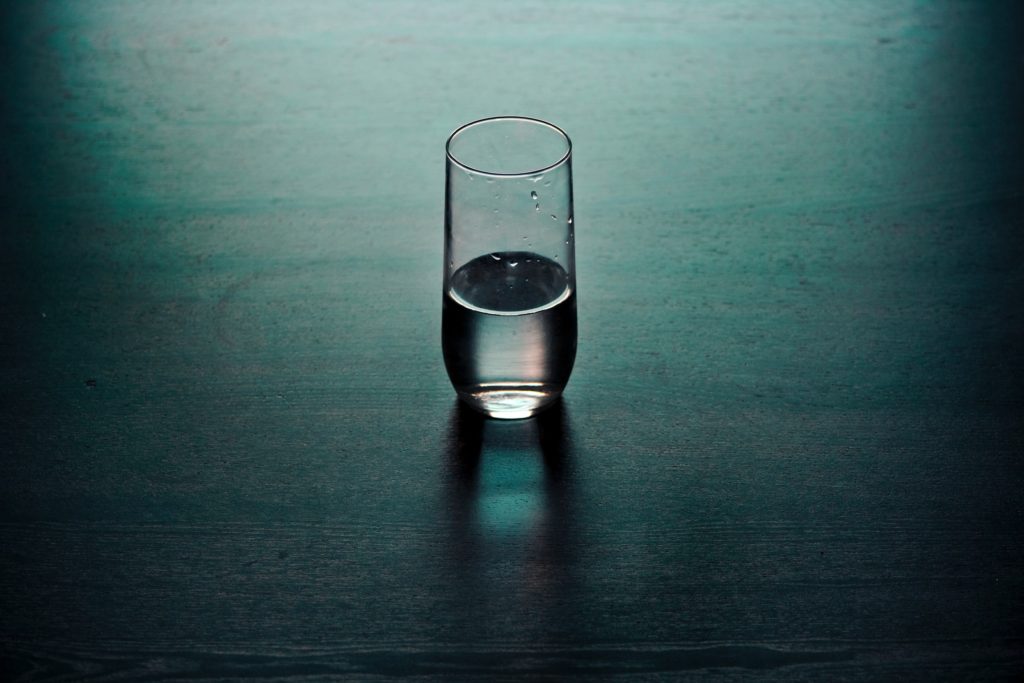
This seemed so obvious that I almost didn’t include it.
You’re thirsty.
If you’re thirsty, you need to hydrate better.
Most of the time, it probably means you need to drink more.
When would it not mean that? Your sodium intake is wrong. If you’re notably hyponatremic (low blood sodium) or hypernatremic (high blood sodium), then you might be thirsty even if your fluid intake is fine.
But most of the time, thirst means you should drink.
During an ultra, it usually means you should have been drinking more for a while.
In your day-to-day life, thirst can be a pretty good indicator of whether or not you need to drink.
During an ultra, it’s terrible.
If you’re thirsty on race day, you’re already behind. Now you get to slow down and play catch up. This is why you should have a hydration plan.
What’s next?
If any of these signs apply to you, then you might need to hydrate better.
That’s why I made this free guide: Hydration Secrets for Ultra Runners.
If you hydrate better, you can run farther and faster… and have more fun doing it.
So download your free guide below.

